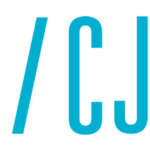- Feb 5, 2002
- 182,622
- 66,157
- Country
- United States
- Gender
- Female
- Faith
- Catholic
- Marital Status
- Married
- Politics
- US-Others
An alarming new movement insists that sexual attraction to minors is not a psychiatric disorder to be managed but an identity to be affirmed. Leading this effort is B4U-ACT, a Maryland-based organization founded in 2003 to support pedophiles, or as they call them, “Minor-Attracted Persons” (MAPs). From May 2 through May 4, 2025, the group will host a conference in Ohio to train mental-health providers in “affirmative MAP therapy,” which seeks to help clients accept their “age of attraction” as an intrinsic and valid part of their identity. This approach abandons clinicians’ traditional risk-management focus when treating pedophiles and raises serious concerns about public safety.
Historically, mental-health professionals have classified pedophilia as a paraphilia, a psychiatric disorder characterized by an abnormal or harmful sexual interest in anyone or anything other than a legally consenting adult. For decades, clinicians treating pedophilia have sought to manage clients’ harmful impulses, prevent abuse, and protect potential victims. Researchers and clinicians working in this tradition aim to understand the condition and develop prevention strategies. They are in a tough position: to get pedophiles to participate, they must create nonjudgmental environments where they feel safe enough to disclose sensitive information, even though the language used can seem, to outsiders, to validate pedophilia. Working with pedophiles can help prevent child abuse, but the public often wrongly accuses these professionals of condoning it. Researchers typically distinguish people with pedophilic inclinations from those who act on them, and believe that such impulses can be effectively managed with cognitive-behavioral therapy, medications that lower sexual drive, and structured support groups.
Continued below.

 www.city-journal.org
www.city-journal.org
Historically, mental-health professionals have classified pedophilia as a paraphilia, a psychiatric disorder characterized by an abnormal or harmful sexual interest in anyone or anything other than a legally consenting adult. For decades, clinicians treating pedophilia have sought to manage clients’ harmful impulses, prevent abuse, and protect potential victims. Researchers and clinicians working in this tradition aim to understand the condition and develop prevention strategies. They are in a tough position: to get pedophiles to participate, they must create nonjudgmental environments where they feel safe enough to disclose sensitive information, even though the language used can seem, to outsiders, to validate pedophilia. Working with pedophiles can help prevent child abuse, but the public often wrongly accuses these professionals of condoning it. Researchers typically distinguish people with pedophilic inclinations from those who act on them, and believe that such impulses can be effectively managed with cognitive-behavioral therapy, medications that lower sexual drive, and structured support groups.
Continued below.

This Group Wants to “Affirm” Pedophilia
B4U-ACT is part of a growing movement to legitimize sexual attraction to children.
 www.city-journal.org
www.city-journal.org

